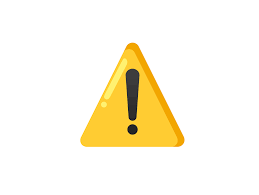Stay Informed: The Importance of Staying Alert in Today’s World
In a fast-paced and ever-changing world, staying alert is more crucial than ever. Whether it’s being aware of your surroundings, keeping up with the latest news and developments, or recognizing potential dangers, being alert can make a significant difference in your safety and well-being.
Why Being Alert Matters
Being alert means being attentive and vigilant. It means paying attention to what is happening around you and being prepared to respond appropriately. In today’s world, where unexpected events can occur at any moment, being alert can help you avoid risks, make quick decisions, and protect yourself and those around you.
Ways to Stay Alert
There are several ways you can enhance your alertness:
- Stay informed: Keep up with the news through reliable sources to be aware of current events that may impact your safety.
- Trust your instincts: If something feels off or suspicious, trust your gut feelings and take necessary precautions.
- Avoid distractions: Limit distractions such as excessive phone use or headphones when in public places to stay focused on your surroundings.
The Impact of Being Alert
Being alert not only benefits you but also contributes to the overall safety of your community. By staying vigilant and reporting suspicious activities or behaviors, you can help prevent potential threats and assist law enforcement in maintaining a secure environment for everyone.
Conclusion
In conclusion, staying alert is a fundamental aspect of personal safety and community well-being. By remaining attentive, informed, and proactive, you can navigate today’s world with confidence and contribute to creating a safer environment for yourself and those around you.
6 Essential Tips for Staying Prepared and Responding to Alerts
- Regularly review and update your contact information for alerts.
- Familiarize yourself with different alert types and what they signify.
- Follow instructions provided in alerts promptly and calmly.
- Have a designated meeting point for family or colleagues in case of an alert.
- Keep emergency supplies such as water, food, and first aid kit handy when alerts are issued.
- Stay informed about potential risks in your area to be better prepared for alerts.
Regularly review and update your contact information for alerts.
Regularly reviewing and updating your contact information for alerts is a crucial step in staying informed and prepared for any potential emergencies or important notifications. By ensuring that your contact details are current and accurate, you can receive timely alerts via various channels such as text messages, emails, or phone calls. This proactive approach not only helps you stay connected to critical information but also enables authorities to reach you efficiently in times of need. Remember, a few moments spent updating your contact information can make a significant difference in how effectively you can respond to alerts and stay safe.
Familiarize yourself with different alert types and what they signify.
It is essential to familiarize yourself with different alert types and understand what they signify. By being aware of various alerts, such as weather warnings, emergency notifications, or security alerts, you can respond effectively and take appropriate actions when needed. Knowing the significance of each alert type empowers you to stay prepared and stay safe in different situations, ensuring that you can respond promptly and protect yourself and others around you.
Follow instructions provided in alerts promptly and calmly.
It is essential to follow instructions provided in alerts promptly and calmly. In times of potential danger or emergency situations, quick and composed actions can make a significant difference in ensuring safety for oneself and others. By adhering to the guidance outlined in alerts without delay and maintaining a calm demeanor, individuals can help mitigate risks, facilitate effective responses, and contribute to a smoother resolution of the situation at hand.
Have a designated meeting point for family or colleagues in case of an alert.
Having a designated meeting point for family or colleagues in case of an alert is a crucial preparedness measure. By establishing a specific location where everyone can gather quickly and safely during emergencies, you ensure that communication and coordination are streamlined when time is of the essence. This proactive approach not only enhances the efficiency of response efforts but also provides peace of mind knowing that loved ones or team members can reunite promptly in potentially chaotic situations.
Keep emergency supplies such as water, food, and first aid kit handy when alerts are issued.
During times when alerts are issued, it is essential to prioritize preparedness by keeping emergency supplies readily accessible. Having items like water, non-perishable food, and a first aid kit on hand can make a significant difference in ensuring your safety and well-being during emergencies. By proactively stocking up on these essentials, you can better equip yourself to face unforeseen situations with resilience and readiness.
Stay informed about potential risks in your area to be better prepared for alerts.
Staying informed about potential risks in your area is essential for being better prepared to respond to alerts effectively. By staying up-to-date on local safety concerns, weather updates, and community notifications, you can proactively assess any potential threats and take necessary precautions. Being aware of the specific risks in your surroundings empowers you to act swiftly and decisively when alerts are issued, ultimately enhancing your ability to stay safe and secure in any situation.

